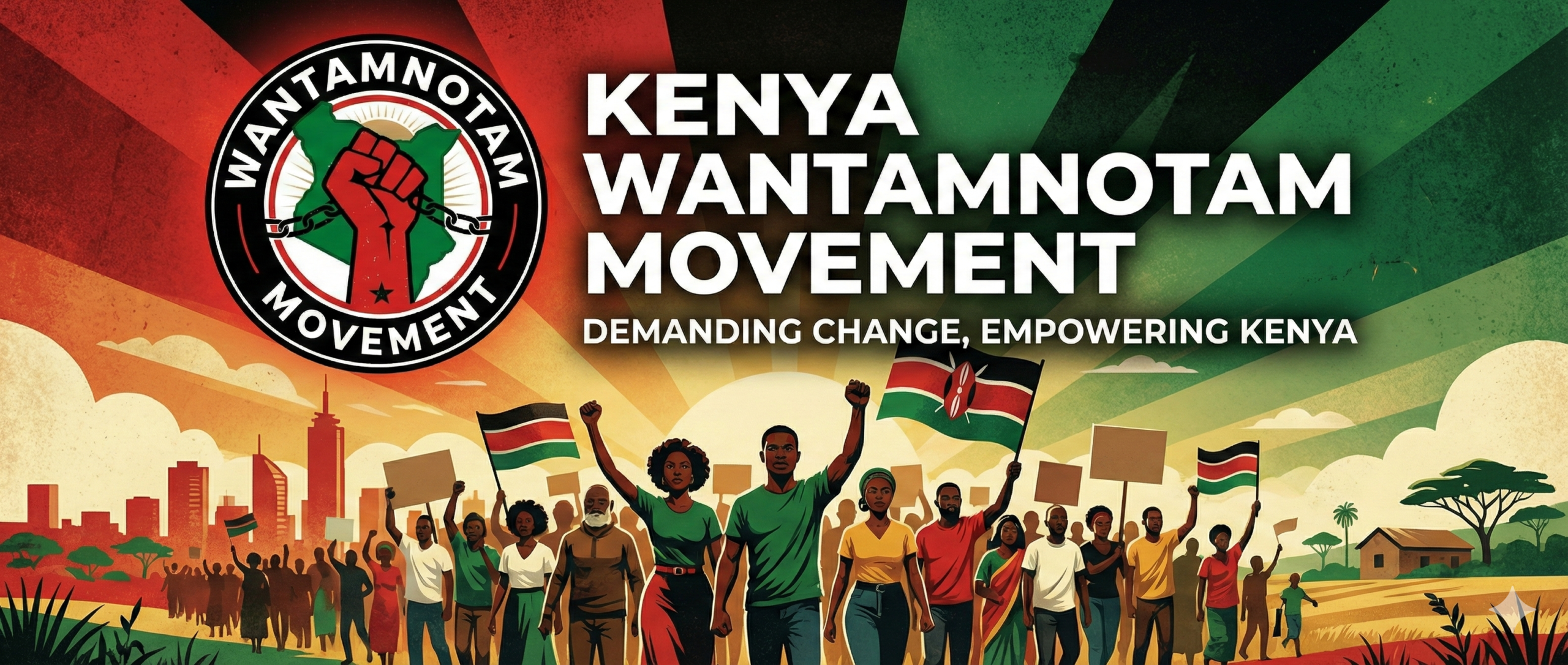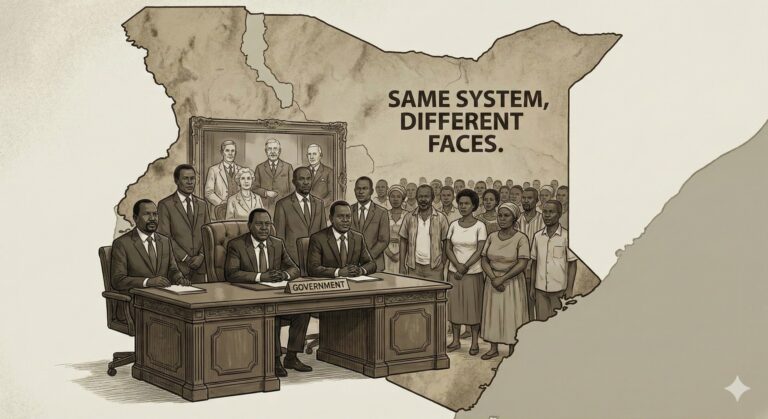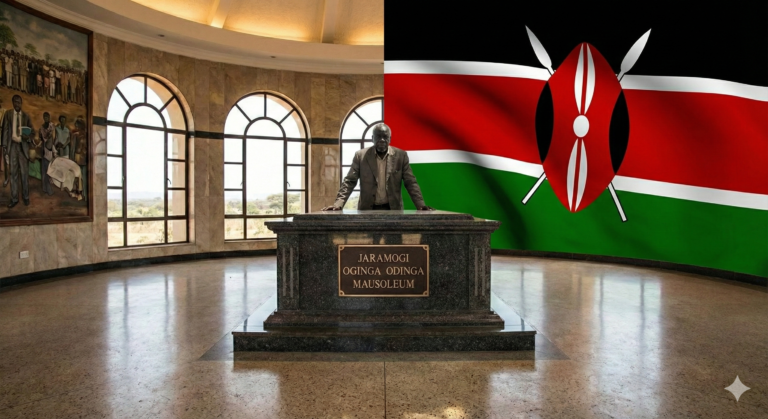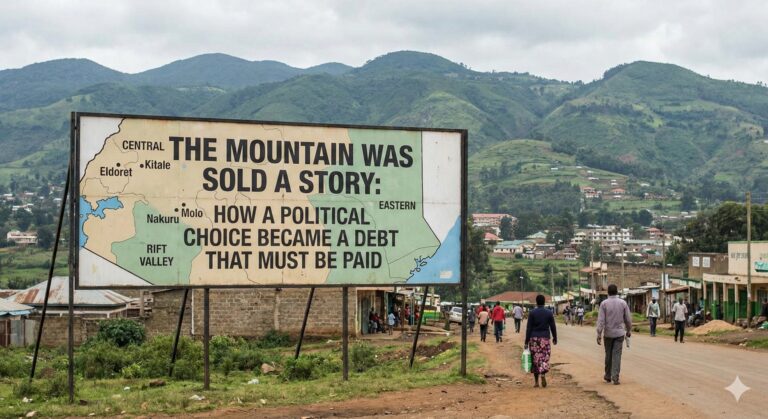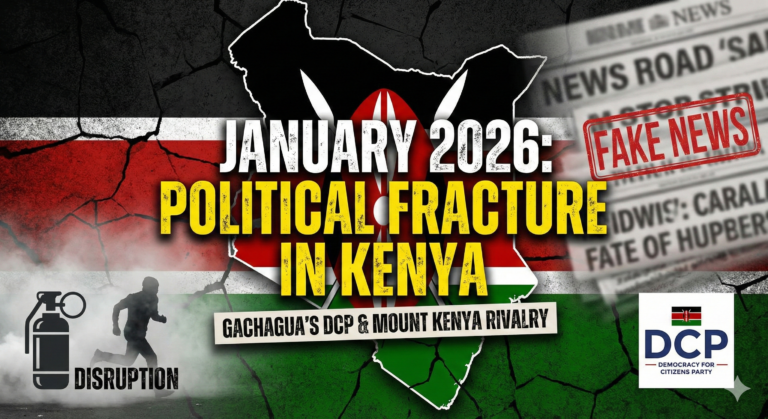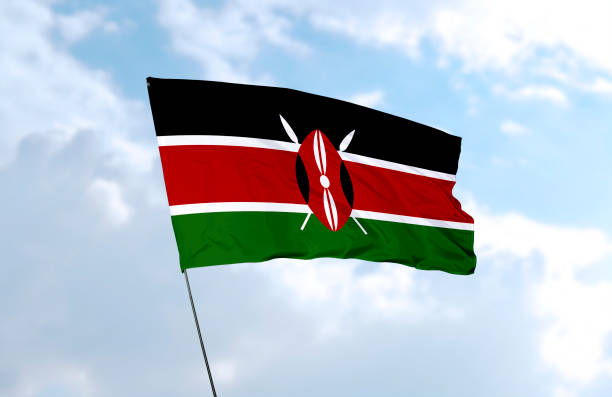
Flag of Kenya in front of the blue sky
Kenya has wealth. Kenya also has hunger. You can stand in Nairobi and see a billionaire’s glass mansion and, across the road, children fighting over scraps. This is not accidental. It is engineered. The divide is deep, widening, and many pretend not to notice. People speak about economic growth, but growth for whom? GDP climbs, but slums multiply. Tall buildings go up, but wages for ordinary workers barely shift. The inequality is not a quiet problem anymore. It is loud. It shows up in every queue at a public hospital, every dilapidated rural school, every family skipping meals.
Poverty and Salaries
Most Kenyans live on very little. The national minimum wage sounds nice on paper, but it cannot sustain a family. Matatu drivers, security guards, waiters, construction workers — they scrape by. The cost of living climbs faster than salaries. Food prices rise, rent rises, school fees rise. Government promises of wage reviews rarely reach the ordinary worker.
The highest-paid group is politicians. MPs earn salaries that dwarf those of doctors and teachers. They also award themselves allowances for sitting in parliament, travel, even for house rent — despite already being some of the richest citizens. When the gap between the salary of a nurse and that of a legislator is hundreds of times, the message is clear: serving the people pays less than ruling them.
Pay inequality drives despair. Young graduates spend years jobless. Those who do find work often earn barely enough for transport and lunch. The desperation feeds corruption — not just at the top but everywhere. Police take bribes because their pay is low and irregular. Clerks sell services under the table. Small theft becomes survival.
Ignorance and Disease
Education was meant to be the ladder out of poverty, but the ladder is broken. Public schools are overcrowded, teachers underpaid, classrooms crumbling. Students are pushed through the system without learning basic skills. Illiteracy hides in plain sight — many finish school unable to read or write well enough to compete in modern jobs.
Ignorance is expensive. It allows lies to spread quickly. Leaders can stand on podiums and make empty promises, knowing voters will clap and cheer. Poor understanding of rights means people do not demand accountability. Poor understanding of health means curable diseases still kill thousands.
Disease thrives where poverty thrives. Public hospitals lack drugs, equipment, and staff. Patients are told to buy gloves, syringes, even medicine, before they can be treated. Many die at home because they cannot afford hospital fees. Malaria still kills. Maternal mortality remains high. Cancer treatment is out of reach for most. Those with money fly to India, leaving the rest to wait in line.
The Church: Sleeping or Awake?
The church in Kenya is powerful. It has numbers, money, influence. Every Sunday millions gather. Politicians know this — they use church pulpits for campaign speeches. The question is what the church does Monday to Saturday.
The church can confront corruption. Instead of giving politicians the microphone, pastors can refuse them the platform until they show evidence of good governance. Churches can expose theft, not bless it. They can educate their members about their rights, teach civic responsibility, and organize around local issues like clean water, school funding, and health care.
Churches already collect offerings every week. A fraction of that money could be redirected to pay school fees for needy children, fund community clinics, feed the hungry, and support small businesses with loans. Real social action, not just prayer rallies. The church could use its moral weight to demand wage reforms, fair taxation, and better public services.
Government and Political Class
Kenya has enough resources to end extreme poverty. The problem is theft and waste. Billions vanish every year through inflated tenders, ghost workers, stalled projects. Money meant for hospitals builds mansions. Funds meant for roads buy luxury SUVs for officials.
Political leaders talk about fighting corruption, but they rarely prosecute their own. Ethics bodies release reports naming powerful figures, yet few face trial. Impunity feeds inequality. The public loses faith in the justice system.
Government could start by cutting its own fat. Reduce the number of advisers, assistants, and committees. Scrap unnecessary foreign trips. Direct savings to public hospitals, schools, and job creation programs.
Decentralization was supposed to help — counties were meant to deliver services closer to the people. Instead, governors have become mini-presidents with their own scandals. Auditor-General reports show counties blowing money on parties, furniture, and inflated bills. Citizens must demand county budgets that focus on water, roads, and health, not luxury.
A Different Politics
Kenya needs leaders who think beyond the next election cycle. That means investing in manufacturing, agriculture, and technology, not just importing goods. Job creation must become the priority, not campaign slogans. If young people have work, crime falls, drug abuse falls, hopelessness falls.
Parliament could legislate caps on income inequality within public institutions. If an MP earns 800,000 shillings a month, a teacher should not be earning 15,000. The gap must narrow. Wage councils can review salaries annually and adjust based on inflation.
Taxation must also be fair. The poor are taxed on bread and cooking oil, but big companies enjoy loopholes and tax holidays. Close those loopholes. Make everyone pay. Then use the revenue transparently. Publish every shilling spent online, project by project.
The Role of Citizens
Kenyans cannot wait for rescue. They have to organize. Neighborhood groups can monitor local projects, report stalled works, pressure MCAs and governors to act. Social media has already shown its power to shame officials into action. This must grow into structured civic watchdog networks.
Citizens can refuse to sell their vote. Handouts during campaigns are not free money; they are loans you repay with five years of bad governance. If voters stop rewarding thieves with re-election, the political class will have to change.
Health and Knowledge as Equalizers
Education reform is urgent. Invest in teacher training, digital learning, libraries, and vocational centers. Education must prepare students to solve real problems, not just pass exams. Technical skills can empower youth to start small businesses and escape dependency.
Health insurance must be universal and actually work. A single illness should not push a family into poverty. Government can negotiate bulk prices for medicine, invest in local drug manufacturing, and build regional referral hospitals.
Church, State, and People Together
No single actor can fix inequality alone. Government must stop looting and start governing. Political leaders must see public office as service, not a jackpot. The church must choose between comfort and courage. Citizens must shake off apathy and demand better.
Kenya can choose to be a country where wealth is shared, where a farmer’s child has the same chance as a minister’s child to see a doctor, to go to school, to live with dignity. That choice will not come through speeches but through action — by government, by church, by every citizen who refuses to accept the current state as normal.
Listen below,Go to KWM Podcast.Enjoy.
